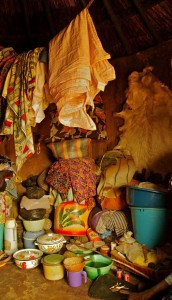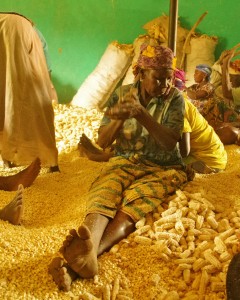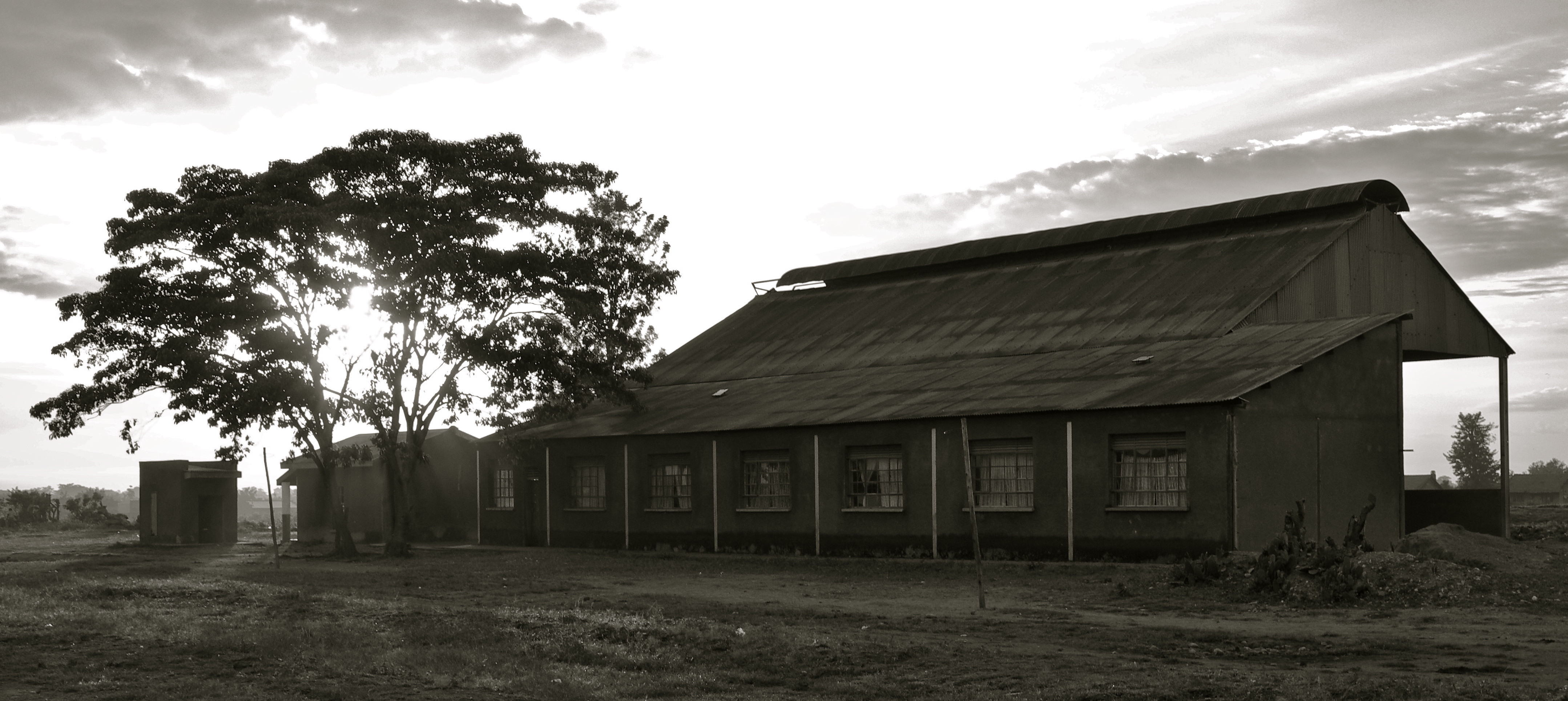In Ghana, like much of Africa, belief in witchcraft is quite common. So are witchcraft accusations. The vast majority of accusations are levied at old women. Who can no longer produce children. Often they are widows without a male relative who can or will protect them from the accusation.

Most of the women we meet were accused by those indebted to them. In the polygamous society of northern Ghana, women are commonly accused by younger, rival wives. These accusations can come from anyone and at any time. The foundation of an accusation is usually unexplained sickness or death. An appearance in a victim’s dream can be sufficient evidence.
Ghana’s camps for alleged witches, more commonly called witch camps, are a depressing place. Here women who have been banished from their home communities, and often beaten and tortured on the way out, find a safe place. They are safe because they are purified in a cleansing ritual performed by a traditional priest at the camp shrine. If they had powers before, now they are gone. Here they are safe from violence and further accusation that would likely come from their neighbors or their own family. But in the camps they struggle to live.
At the camp we visited, Kukuo, women must walk miles for water each day. In the wet season the walk is farther and steeper. At Kukuo, the women cannot afford to rethatch their roofs, which needs to be done at least every three years, so many cannot find a dry place to lay their head. Until the rain stops, they have to sit up or risk pneumonia. When they left their homes their possessions were taken or destroyed. They are forbidden to take anything with them. So at Kukuo they do not have the capital to start a new business or farm. Simply acquiring food is a sometimes insurmountable obstacle. Often a granddaughter lives at the camp with an alleged witch helping her to survive. Without a helper, for these alleged witches, some of whom are in their 70s, 80s, and 90s, the task of survival becomes exponentially higher. But, merely being at the camp, for the granddaughter, increases the likelihood of an accusation of her own. Guilt by association—or inheritance. Kukuo is a safe place, not a carefree place.
Which is why the experience of husking corn with these women was so enchanting. Action Aid/Songtoba, which advocates for the rights of the alleged witches, had donated three acres of corn to the alleged witches. For some of the women, all their food comes through these kinds of donations. The corn was delivered and left in a large pile in one of the larger, non-witch huts in the community. (One of the unique things about Kukuo is that the alleged witches are not segregated into their own area. In Kukuo they live among, and as part of, the larger community.) To get the dried kernels from the husks the women begin by beating the corn with sticks. They work rhythmically together singing to keep time. Our guide and translator told us the songs were thanks to the Kukuo community for not abandoning them and for recognizing their humanity.
The beating does not rid the husks of all the kernels, so behind the beaters is a second line of women manually removing the holdouts. Some do it with their hands. Others rub the cobs together. A couple had pieces of metal that looked like large cheese graters that did most of the work for them. I sat with these women to remove my share of kernels. The old woman on my left was laughing, smiling, and singing. She gave me some smiles that I returned and she tried to talk to me. Unfortunately, I don’t speak her language.

Fortunately, we got over our language barrier to communicate when Conor took a turn beating the cobs. She loved it. She giggled and slapped my knee and shook my shoulder indicating that I should take in this sight. Her giddiness probably had something to do with the color of his skin, but I think it mostly had to do with his gender, which was conspicuous in the room full of old, accused witches. When he finished he had half a dozen kernels stuck in his beard.
When there was a lull in the action—when we were waiting for a fresh supply of cobs—I would run my hands though the kernels looking for buried cobs. The old lady next to me was doing this too, but she also threw kernels at me. At first, a few at a time, but she quickly started throwing handfuls. Laughing I threw some back at her. During another lull she buried my feet in the kernels. It was wonderful to interact with an alleged witch in this way. So many of our other meetings with them were about their tragedy—how they came to be at the camp and their conditions now that they are there. This meeting was playful and joyful. This interaction was so at odds with the rest of our visit. I am so glad I met this woman. Without this woman our visit to Kukuo would have been full of only tears and frustrations. But if she can laugh and sing and play inside a camp for alleged witches, I can leave with a little hope.
